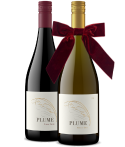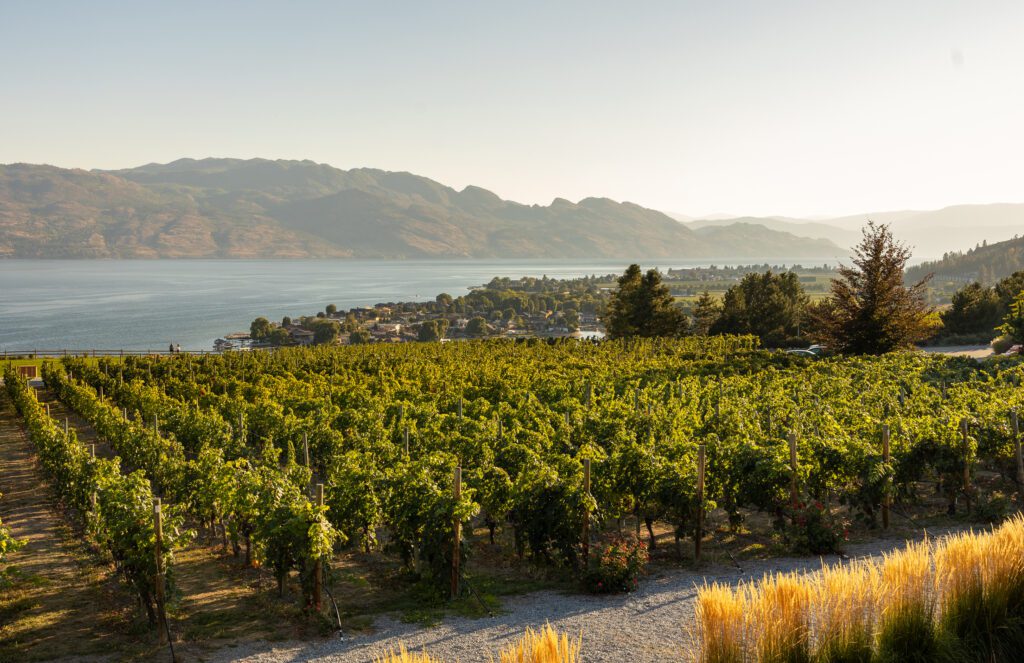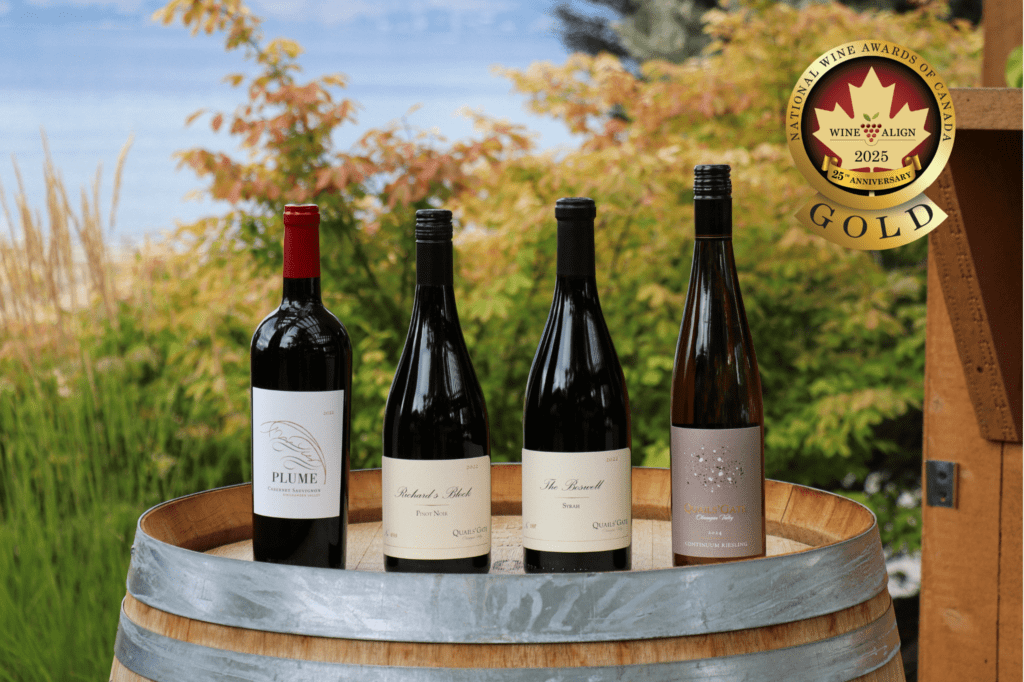“Environmental stewardship has always been one of the foundational pillars at Quails’ Gate. Our dedication to sustainability means we consistently apply best practices and ensure prudent use of resources. We feel a personal responsibility to protect this land for future generations to enjoy,” Tony Stewart, Proprietor & CEO, Quails’ Gate Estate Winery.
The Stewart family has been farming in the Okanagan for more than 100 years. With this history comes a sense of responsibility for stewarding the land and protecting its future. At Quails’ Gate, sustainability is a policy of continuous improvement and a philosophy of doing more with less. We believe our dedication to environmental stewardship is reflected in the care that goes into every bottle.
At Quails’ Gate, we believe great wines come from exceptional vineyards and through decades of research, careful crafting and an unwavering dedication to consistency and sustainability, this Earth Day, we are extremely excited to announce that our vineyards were recently certified by Sustainable Winegrowing B.C. (SWBC). We are honoured to be recognized alongside grape growers and wineries across the province who are dedicated to making wine production sustainable now and for the future.
 “As successful pioneers in the B.C. wine industry, it was a pleasure to certify Quails’ Gate Estate Vineyards with SWBC in our inaugural year. As pioneers now ourselves, for sustainability certification in B.C. wine and grape production, we look forward to learning from our industry partners and hope our path follows such success as the Stewart family and Quails’ Gate. We truly appreciate their dedication to environmental and community health and look forward to sharing their example as a highlight of the many benefits that follow such practice,” says Katie Pease, Program Manager, Sustainable Winegrowing B.C.
“As successful pioneers in the B.C. wine industry, it was a pleasure to certify Quails’ Gate Estate Vineyards with SWBC in our inaugural year. As pioneers now ourselves, for sustainability certification in B.C. wine and grape production, we look forward to learning from our industry partners and hope our path follows such success as the Stewart family and Quails’ Gate. We truly appreciate their dedication to environmental and community health and look forward to sharing their example as a highlight of the many benefits that follow such practice,” says Katie Pease, Program Manager, Sustainable Winegrowing B.C.
“If you look at sustainability from a broad-based perspective (environmental, economic and social elements), a sustainable company is a healthy company with active, engaged staff that are proud of where they work. This ultimately will produce better wine quality in the long run because all of the elements are in place for success. The goal of every winery is to produce better wines each year, and sustainability ensures the people, assets and resources are all in place to achieve this,” says Jeff Del Nin, Senior Winemaker, Quails’ Gate Estate Winery.
 Our patch of earth in the lush and fertile Okanagan Valley is one of the most stunning places in the world. Quails’ Gate Estate Winery is set on the shore of a glassy blue lake, generously warmed by B.C. sunshine and is home to valuable insects, vines, flora and fauna, so every operating decision we make reflects our pride of place and its people.
Our patch of earth in the lush and fertile Okanagan Valley is one of the most stunning places in the world. Quails’ Gate Estate Winery is set on the shore of a glassy blue lake, generously warmed by B.C. sunshine and is home to valuable insects, vines, flora and fauna, so every operating decision we make reflects our pride of place and its people.
“Quails’ Gate has been farming with a sustainability mindset since 1956. From cultivation to composting, we have always looked for ways to continuously improve and manage the land using the least amount of inputs to grow the best possible quality grapes. It’s a testament to the Stewart family’s core value of quality that every year we want to be better than the last and by being sustainable it’s something that’s inherently grown within the company, within the family and it’s what we do on the farm,” says Ed Tonner, Senior Viticulturist, Quails’ Gate Estate Winery.
 Sustainability is more than just being environmentally friendly; it integrates protection of the environment, fiscal responsibility and respecting our community and the people within it. The decisions we make are focused on a comprehensive view of our entire operation. This includes our land stewardship, offering safe and fulfilling employment and being respectful neighbours. We truly want to pass on a meaningful legacy to future generations while also respecting our ability to run a business and create stunning wines from sustainable vineyards.
Sustainability is more than just being environmentally friendly; it integrates protection of the environment, fiscal responsibility and respecting our community and the people within it. The decisions we make are focused on a comprehensive view of our entire operation. This includes our land stewardship, offering safe and fulfilling employment and being respectful neighbours. We truly want to pass on a meaningful legacy to future generations while also respecting our ability to run a business and create stunning wines from sustainable vineyards.
“It is extremely important that the vineyards and the winery are managed in a way that is sustainable so that future generations will be able to benefit from the vision and hard work of their predecessors,” says Del Nin.
With more than 400 acres under vine, we take our commitment to responsible farming seriously. We have a tradition of using low-impact viticulture practices and our philosophy is to do more with less, employing a holistic ecosystem management approach to grape growing. The Stewart family empowers the team to deliver on exceptional quality and consistency, year over year. This is achieved through farming in small lots with attention to specific blocks, and low intervention winemaking that allows the fruit to speak for itself.
“As a winemaker, my primary focus is producing wine that is of the highest possible quality. The key to long-term success in the wine industry is to have a proper balance in place – real sustainability. A company needs to establish a track record of excellence over many years, even generations, to eventually become recognized as a top producer. So, our decisions must be sustainable – they must take into account the legacy of our past with a responsibility to future generations, all while trying to satisfy the palates of today’s wine lovers,” says Del Nin.
Quails’ Gate is committed to cultivating a sustainable future. The methods and standards outlined by the SWBC certification process for our vineyards have provided us with the tools to review and assess our practices regularly to find opportunities for continuous improvement and innovative approaches to farming responsibly. Below are just a few examples of our efforts in our vineyard.
- Drip irrigation conserves water ensuring the appropriate amount of water is used throughout the year
- Use of organic fertilizers and nutrients derived from our composting program
- Increased equipment efficiencies help minimize our environmental footprint
- Setting up natural filtration throughout the vineyard to reduce runoff
 “SWBC is an important part of the B.C. grape growing community. The certification process allows us to work together collectively as a community with a focus on continuous improvement. It helps bring the grape-growing community together to share our knowledge and strengthen the industry as a whole. We are very proud to be part of the SWBC certification. It took a lot of dedication and a lot of hard work, and we feel it’s something that can benefit the grape-growing community and ideally benefit the entire Okanagan,” says Tonner.
“SWBC is an important part of the B.C. grape growing community. The certification process allows us to work together collectively as a community with a focus on continuous improvement. It helps bring the grape-growing community together to share our knowledge and strengthen the industry as a whole. We are very proud to be part of the SWBC certification. It took a lot of dedication and a lot of hard work, and we feel it’s something that can benefit the grape-growing community and ideally benefit the entire Okanagan,” says Tonner.
Our commitment to sustainability extends past our vineyards into other areas of our business.
- Our composting program in the winery, restaurant and offices diverts more than 150 pickup truck loads of yard waste to our compost pile annually.
- In the Wine Shop, we use biodegradable plastic bags, eco-friendly paper bags and reusable cloth bags.
- Lighting in the offices and on the property is motion-activated, while supplemental outdoor lights and water features are on timers.
- We are the first winery in the Okanagan to participate in Return-It’s wine cork collection program which collects and recycles natural wine corks into eco-friendly footwear.
Continued improvements like these bring us closer to completing the SWBC certification for all estate operations beyond our vineyards.
Del Nin says that “the certification program is comparatively new in B.C., but we expect that the program will quickly take hold and become the standard for B.C. wineries in the near future. This particular program is extremely comprehensive and looks at all aspects of sustainability. Because the program is so comprehensive and leaves nothing ‘off the table’, we are confident that this program will become synonymous with B.C. wines in the future.”
SWBC has built as its foundation on two sustainability standards, one for vineyards and one for wineries. These standards outline industry goals and anticipated outcomes as well as the practices (or criteria) that must be met to reach certification. They are built on a continuous improvement model and SWBC has worked hard to create rigorous yet accessible standards for all those in the B.C. wine industry. Certification can be obtained for a vineyard and a winery, yet they are separate certifications. Vineyards can be certified independently. However, for wineries to become certified (and showcase the certification logo on their bottles) they must first verify a certain percentage of their grape intake is certified sustainable (among other criteria).
In the winery, sustainability initiatives focus on two main areas:
- Making high-quality wine with the lowest possible consumption of energy and water.
- Generating the least amount of waste in packaging operations and making the smartest possible decisions to reduce waste and recycle as much as possible.
Within these two broad categories, many elements can contribute to the overall sustainability rating of the operation.
Quails’ Gate is a proud member of Sustainable Winegrowing B.C. and looks forward to collaboratively building a sustainable future for generations to come. Quails’ Gate wine is available at our online shop here and can be delivered directly to your doorstep. Enjoy 15% off all our wines when you become a Wine Club member here. Receive exclusive benefits and access to events, promotions, and our club-only wine, The Connemara.
Follow Quails’ Gate Winery on Instagram, Facebook and Instagram
Words/Interview by Angela Aiello, @SuperWineGirl





